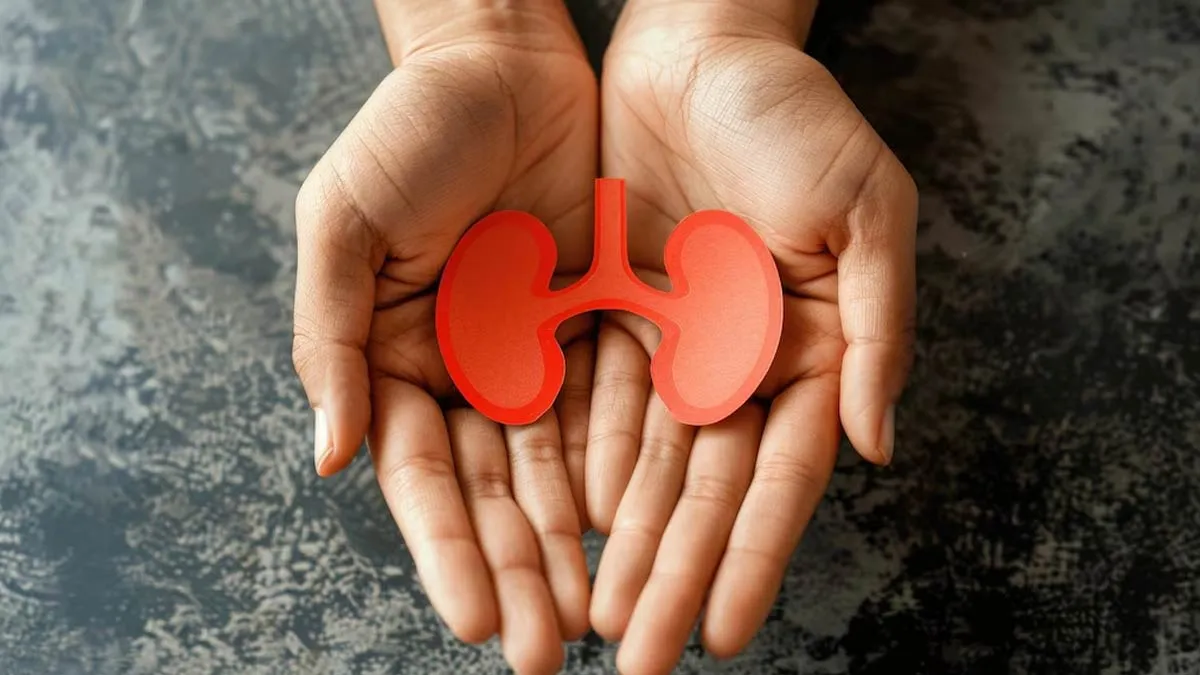
Kidneys are small but powerful organs that filter toxins, balance fluids, and keep your body functioning smoothly. Yet, kidney diseases affect millions worldwide, often silently until significant damage has already been done. The good news is that many kidney problems can be prevented with simple lifestyle changes. From staying hydrated and eating a balanced diet to engaging in regular exercise, small choices can make a big difference in keeping your kidneys healthy.
Table of Content:-
On this World Kidney Day, which is observed on 13th March every year, we spoke to Dr Sooraj YS, Nephrologist, Renai Medicity, Cochin, who explained how various factors like hydration, proper dietary routines, and exercise impact can significantly reduce the risk of developing kidney disease in the long term.
The Role of Diet in Kidney Health

Kidney diseases affect over 13% of the earth’s population, according to the Kidney Research and Clinical Practice. A balanced diet is imperative to ensuring healthy, functioning kidneys. Sodium reduction is of cardinal importance, as excessive salt in diet increases blood pressure, which is a leading cause of kidney failure. The recommended intake of salt is less than 2,300 mg every day, with an ideal of 1,500 mg for most adults, as per the US Food and Drug Administration (FDA).
Daily consumption of protein-rich foods requires careful consideration as it is an essential nutrient, however excessive intake forces the kidneys to work overtime to filter all the waste being produced in the body. “For healthy individuals, protein consumption from plant and animal sources is advisable, as healthy kidneys can regulate these minerals, but damaged kidneys may not be able to function properly. Antioxidants in foods like berries and vegetables can help the body combat oxidative stress and protect the kidneys from damage. A Mediterranean-style diet with fruits, vegetables, lean proteins and whole grains has demonstrated positive results in kidney health,” said Dr Sooraj.
Also Read: Unusual Symptoms Of Kidney Damage You Need To Know
Why Hydration Matters for Kidney Function

It is a well-known fact that drinking ample amounts of water is fundamental to maintaining kidney health. Hydration helps the kidneys remove bodily waste through urine while keeping the blood vessels open for blood to travel freely for nutrient delivery across the body. Dehydration results in the production of concentrated urine, making the body susceptible to kidney stone formation Urinary Tract Infections (UTIs), which cause significant damage to the kidneys, so maintaining regular hydration prevents damage by diluting the urine.
“Generally speaking, eight glasses of water daily is the recommended fluid intake for a healthy individual but personalised intakes vary across other factors like age, gender, activity level, climate etc. However, overhydration or drinking too much water also poses a problem to the body, especially those with pre-existing heart conditions, kidney diseases, etc,” explained Dr Sooraj.
Also Read: Kidney Failure And Stroke: Understanding The Connection And Risks
Importance of Physical Activity

Consistent physical activity offers innumerable benefits to the body. Exercise improves cardiovascular function, reduces hypertension, and aids weight management, all of which act as risk-reducing factors for kidney disease. “Aerobic and cardio-reliant activities like walking, swimming, cycling, etc, have positive effects on the kidneys. Strength training like lifting weights twice a week combined with cardio improves muscle mass and metabolic health. For adults with kidney disorders, a specialised workout regime is on the advice of their physicians to ensure the safety of the patients,” added Dr Sooraj.
Bottomline
Dr Sooraj concluded, “The most impactful kidney prevention strategy is an intertwined relationship between a balanced diet, hydration, and exercise alongside regular health screenings and management of any underlying conditions like diabetes or hypertension. Medical tests can detect issues early when interventions are most effective. By adopting a more conscious everyday lifestyle featuring a balanced diet, proper hydration, and a regular physical activity routine, individuals automatically reduce their risk of kidney disease and promote overall well-being.”
[Disclaimer: This article contains information provided by an expert and is for informational purposes only. Hence, we advise you to consult your professional if you are dealing with any health issue to avoid complications.]
Also watch this video
How we keep this article up to date:
We work with experts and keep a close eye on the latest in health and wellness. Whenever there is a new research or helpful information, we update our articles with accurate and useful advice.
Current Version